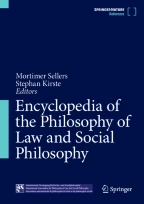
Is it possible for a law to recognize a right to disobey the law? If the State establishes institutional mechanisms of revision and exercise of citizenship, is the recognition of such a right possible? These questions reveal to us that civil disobedience presents itself as a paradox.
We must start by setting a difference between a contradiction and a paradox. If two things are contradictory, the confirmation of one turns the other null. Therefore, two contradictory terms cannot co-exist. The paradox works differently. It also sets a contradiction between terms or things. However, a paradox works in a way that the contradiction sets interdependence between them so that they do not turn each other null. Thus, confirming one term affirms the contradictory structure sustained, ensuring the other term. How does this fascinating perspective borrowed from quantic physics relate to law?
When we affirm the formula of civil disobedience, that is, the right to disobey the law, we are.